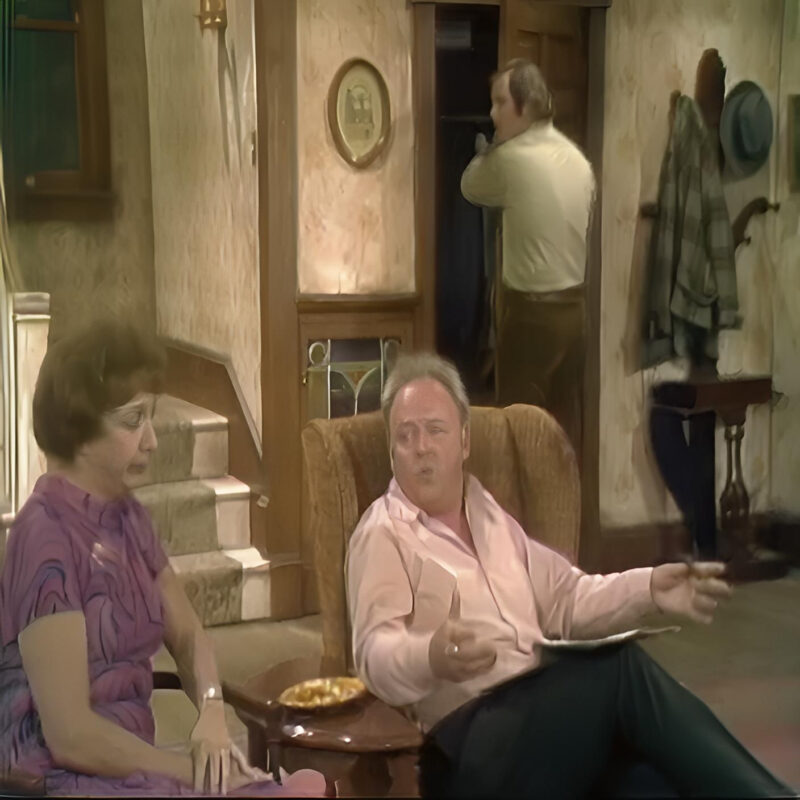
It seems unthinkable by today’s standards: the most popular character on television was a blue-collar bigot from Queens, N.Y., who, despite his prejudices, was often considered lovable.
Such was the case for much of the 1970s with Archie Bunker on All in the Family, which debuted in 1971. For five years, it was the most-watched show on television.
The show was groundbreaking, openly addressing serious issues of the day. While other shows featured surface-level plots, All in the Family tackled deeper topics such as racism, women’s rights, the Vietnam War, homosexuality, rape, and more.
“I had a father who was a bit of an Archie Bunker,” says Norman Lear, the show’s creator. Lear recalls his father using racist terms for Chinese and Black people. “He was, in my mind, a long way to what became Archie Bunker.”
Actor Carroll O’Connor portrayed Bunker for 13 seasons—nine on All in the Family and another four in the spinoff, Archie Bunker’s Place.
Lear tells Morning Edition that dozens of actors auditioned for the role. When O’Connor walked in, “we sat at this little table, and he read. My entire body felt, ‘Oh my god. This is Archie.'”
Jim Colucci, the author of All in the Family: The Show that Changed Television, compiled interviews with cast and crew, including Lear’s recollections of certain episodes.
Colucci notes that, despite the way the main character was written, the actual atmosphere on set was one of respect. “Even guest stars who came in for just a few episodes remarked on how collaborative the show was,” he says. “Actors who were people of color or LGBT often found themselves playing small or stereotypically written roles. On All in the Family, they got to do something authentic and funny. They knew, even then, how groundbreaking it was.”
Jean Stapleton played Archie’s wife, Edith Bunker, a character who evolved from a meek housewife to a symbol of the feminist movement of the time.
“She was developed to respond to any situation in life the way the most decent, good person would respond,” Lear says. “The talent Jean Stapleton brought to that character was absolutely wonderful.”
Colucci believes that playing Edith influenced Stapleton’s own life. “She had a specific religious background and a quiet life in Pennsylvania theater. Through All in the Family and the wider world of Hollywood, she became awakened to the women’s issues of her time and grew as a person.”
In the 50 years since All in the Family debuted, many TV shows have pushed boundaries with their own explorations of controversial topics. Lear still sees room for deeper conversations on religion.
“There is a lot that can be done with discussions that include belief and our lives from a spiritual standpoint,” he says.
At 99 years old, Lear reflects on his vast career, filled with beloved TV shows he produced, wrote, developed, or created. His advice is to focus on the present.
“Two little words we don’t pay enough attention to: over and next,” he says. “When something is over, it is over, and we are on to the next. I like to think about the hammock in the middle of those two words. That’s living in the moment. That’s the moment I believe I’m living as I complete this sentence. And it couldn’t be more important to me.”
